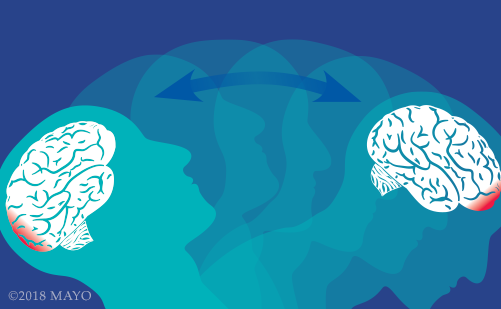-
Featured News
Helping Others Heal: Concussion research and education for patient care
 Michael Stuart, M.D., orthopedic surgeon and co-director of Mayo Clinic Sports Medicine Center, says that youth should enjoy the rewards of participating in sports. "My approach has always been that we don't want to get rid of sports, or team sports or collision sports. We need to strive to make them safer."
Michael Stuart, M.D., orthopedic surgeon and co-director of Mayo Clinic Sports Medicine Center, says that youth should enjoy the rewards of participating in sports. "My approach has always been that we don't want to get rid of sports, or team sports or collision sports. We need to strive to make them safer."
As a major referral center, Mayo Clinic sees many athletes such as Ben Utecht who need care after a concussion or other traumatic brain injury. And while Mayo Clinic's experts are committed to providing unparalleled treatment options, they are also focused on research and education efforts to more accurately and objectively diagnose concussions to make sports safer for athletes at every age and ability.
"Diagnosing a concussion can be challenging," says Michael J. Stuart, M.D., orthopedic surgeon and co-director of Mayo Clinic Sports Medicine Center. "Traditionally, concussion has been diagnosed by player reported symptoms, observable signs or some type of examination on the sideline having to do with memory, recall and balance. These are all important, but there's a subgroup of athletes who don't report symptoms or don't have them yet because symptoms can evolve over time." Read the rest of the article.







